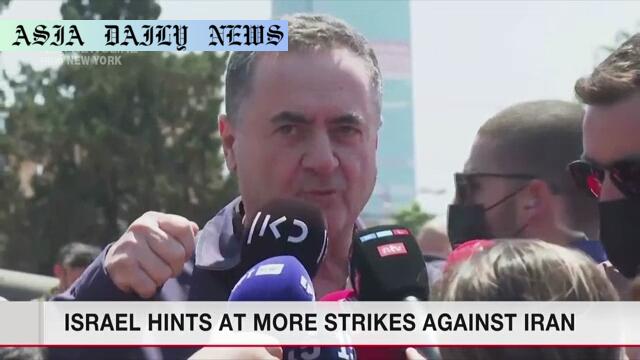Iran’s nuclear sites: Israeli Defense Minister Israel Katz hinted at continued strikes, connecting with recent action targeting Fordow.
Israeli Defense Minister Israel Katz indicated ongoing plans to target Iran’s nuclear sites.
The Fordow facility, a key underground nuclear site, is a primary focus.
Iran retaliated with missile strikes, wounding several in central Israel.
Iranian Army commander announced punitive operations in response to Israeli aggression.

Escalation of Tensions Between Israel and Iran
The conflict between Israel and Iran has reached a boiling point, with both nations engaging in aggressive actions. Israeli Defense Minister Israel Katz confirmed that strikes against Iranian nuclear sites will persist, specifically mentioning the Fordow facility. Located deep underground, Fordow is a challenging target, requiring advanced munitions such as bunker-buster bombs. Israel has reportedly requested the United States to provide these specialized armaments, a move that highlights the severity of the current strategic situation.
Israel’s military operations have previously targeted significant Iranian facilities, including the nuclear site at Natanz, as well as key military figures. Local media suggests Israeli commanders are confident in their capability to neutralize Iranian nuclear infrastructure within a couple of weeks. These assertions showcase Israel’s unwavering determination to address perceived threats, regardless of the operational challenges posed by deep-underground installations like Fordow.
Iranian Retaliation and Escalation
In response to Israel’s aggressive actions, Iran has launched a series of missile strikes, reportedly injuring five individuals in central Israel. Iranian officials have emphasized that these retaliatory measures are merely warnings, with plans for more severe punitive operations in the near future. Iranian Army commander-in-chief Abdolrahim Mousavi stated that these actions are intended as a deterrent, signaling that the conflict is far from over.
Iranian media, including the Tasnim News Agency, revealed that a new cycle of attacks against Israeli targets has already begun, further intensifying the regional conflict. With both nations unwilling to back down, the situation remains precarious, with the potential for further escalations as each side seeks to establish dominance in this high-stakes geopolitical standoff.
The Broader Implications of the Conflict
The rising tensions between Israel and Iran have far-reaching implications beyond the immediate region. If the United States chooses to supply Israel with the requested bunker-buster bombs, it could be seen as a direct endorsement of Israel’s military strategy, potentially drawing other global powers into the conflict. Additionally, the volatility in the Middle East may disrupt global markets, particularly energy supplies, as many countries depend on oil from the region. This underscores the importance of diplomatic efforts to de-escalate the situation and prevent a broader conflict.
Meanwhile, Israel’s actions against Iran’s nuclear program align with its longstanding policy of preventing its regional rivals from developing nuclear weapons capability. However, these operations risk provoking a more dangerous response from Iran, especially if civilian casualties or major infrastructure damage occurs. For now, the world watches closely as the situation continues to unfold, hoping for resolutions that avoid prolonged violence and instability in an already volatile region.
Commentary
The Strategic Complexity of Targeting Fordow
The Fordow nuclear facility represents a significant challenge for Israel. Built deep underground, its primary purpose is to shield Iran’s nuclear program from external threat. For Israel, targeting such a site requires advanced military capabilities and unwavering precision. The reported request for bunker-buster bombs from the United States demonstrates how complicated such operations can get. While Israel has shown itself capable of executing complex missions in the past, the inherent risks in striking Fordow reflect the growing dangers of this conflict.
Iran’s Calculated Retaliations
The Iranian response to Israeli strikes appears measured yet firm. The missile attacks reported in central Israel suggest that Iran is willing to showcase its military capacities without escalating to an all-out war just yet. These retaliatory strikes can also be seen as a message to both Israel and the international community about Iran’s capabilities. However, the tone of Iranian military leadership, particularly remarks by commander Abdolrahim Mousavi, indicates that there are plans for more severe operations. This strategic ambiguity keeps both Israel and its allies guessing, which may work in Iran’s favor in the short term.
Diplomatic Solutions in an Era of Escalation
The ongoing conflict underscores the need for diplomatic intervention. International players, particularly the United States, have a crucial role to play in de-escalating tensions. While nations have their respective interests, it’s imperative to focus on collaborative efforts to address the root causes of the conflict. Without proper diplomatic measures, the situation could quickly spiral into a full-scale war, with devastating consequences for the entire region. As Israel and Iran continue their aggressive stances, the window of opportunity for peaceful resolution narrows significantly.


